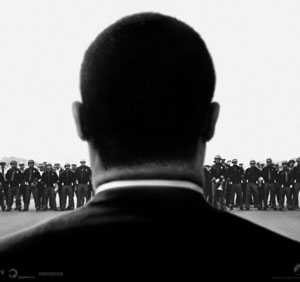A man I didn't know came up to me in a pub and said he'd seen my television film about death and dying. "God, that was depressing," he told me. "Don't you ever look on the bright side?" I gave him a friendly nod and turned back to my drink. I could have told him that I was once well known for my optimism. People rang me up for comfort and reassurance. I was even known among my friends as 'Butlin's Man' because of my constant cheerfulness. My glass was always half full.
What changed all that was the dreadfully sad business back in the early nineties with Janet. It began promisingly. We'd been driving round North Wales together looking for a possible walk when we came across this perfect mountain. As the guidebook said: "Tryfan's distinctive shape dominates the view when approaching Llyn Ogwen from along the A5 road." And what a distinctive shape. Some mountains hide themselves away in ranges but Tryfan is as brash and singular as a pyramid: a 3,000 foot high pile of damp grey rock with an unmistakeable no-nonsense peak.
"We could easily climb that", I said to Janet who was eyeing the landscape warily. "Listen to this. 'The mountain is a scrambler's heaven'." "But what's 'scrambling'?" Janet asked. "Isn't that a technical term, like abseiling? Don't you have to learn to scramble?"
"Oh no, there's nothing technical about scrambling", I told her. "It's like crawling but quicker, or else we'd never be able to get up there and back in four hours."
We set off in a thin drizzle. "It's only a light mist", I told Janet as we followed the path to Llyn Idwal. "Shouldn't we have reached the waterfall by now?" she asked after half an hour. "Nearly there," I told her, slightly lengthening my stride. "And what's happened to the lake we were supposed to come to?" "Nearly there," I told her. Beyond the lake the guidebook told us to ascend a 'scree-like slope'. It was obviously scrambling time. But no matter how hard we crawled the scree kept giving way. After nearly an hour on our hands and knees we were still only halfway up. "Nearly there," I shouted back to Janet. In the end the skittering pebbles won the day and we reluctantly allowed ourselves to slither all the way back down to our starting position.
But no worry. No worry at all. According to the book we could choose to ignore the scree slope and instead go back to the path and 'head up to the right where a route can be made up round the Far South Peak'. At least we were now scrambling over big boulders and moving in an upward direction. 'How far's the top?" Janet shouted from well below me. "Nearly there," I called back. "I can almost see it." Not until we'd clambered over wet boulders for yet another hour in the enveloping drizzle did I begin to wonder what the guide had meant by 'making up a route'. How did one do that? I mean, what were the required ingredients?
Janet sat down on a big wet rock and started crying. "We're lost, aren't we?" "Lost? How can we be lost? If you wait a second for the clouds to pass you can see the peak. How can we be lost when we can see our destination? And look down. Look how far we've come. I reckon we're nearly there."
For yet another hour we tried to scramble nearer to the summit. Up and over this mound of boulders. Nearly there. And this mound. Nearly there. Along what looked like a proper track. Nearly there. And then suddenly there was no 'there' to be near. The path stopped, a sheer cliff lay above and below. The only way was back. And down. And down. Don't worry. Going down is always easier. We should be able to see the road after the next turn. Look. Is that our car? Nearly there.
Back in car I wiped the condensation off the windscreen and took a last look at the unconquered Tryfan. Janet didn't speak. Later that night in a tiny pub in Bangor, she explained that she'd rather not see me any more. How did she mean? I asked It was simple really, she said. As she'd climbed down the mountainside drenched by the rain and terrified that at any moment she'd slip and fall over the cliff edge to an early death she'd decided with a terrible fervour that never again in the whole of her life did she ever want to be told under any circumstances whatsoever that she was 'nearly there'.
Ol' misery guts
Laurie Taylor on the slippery slope to pessimism

